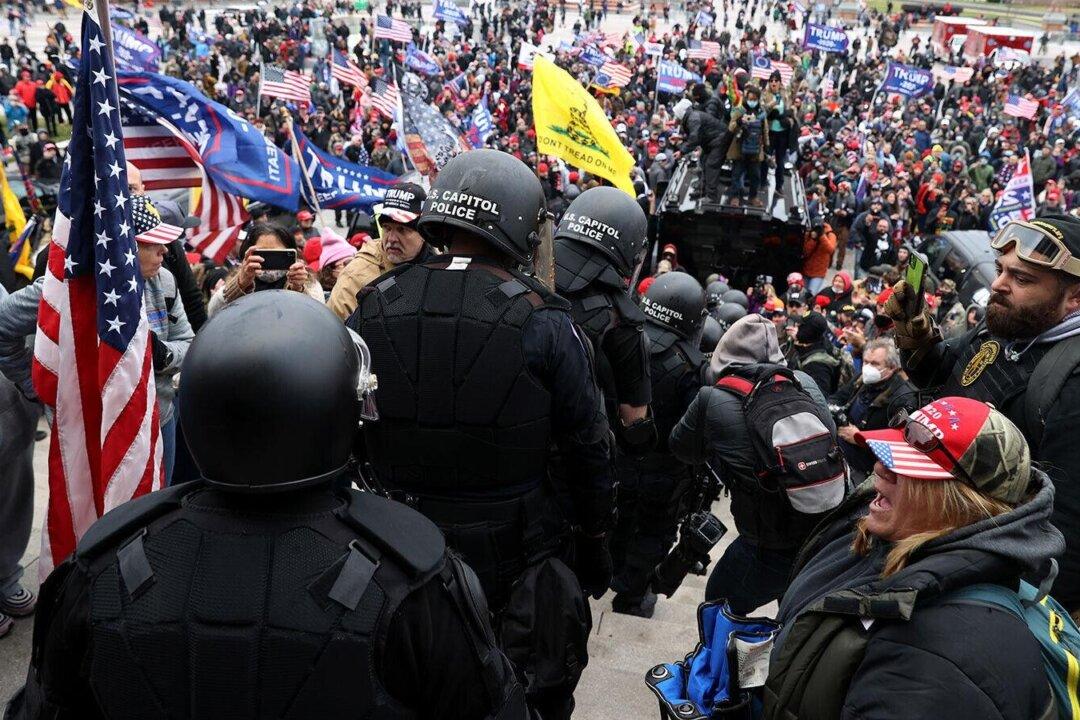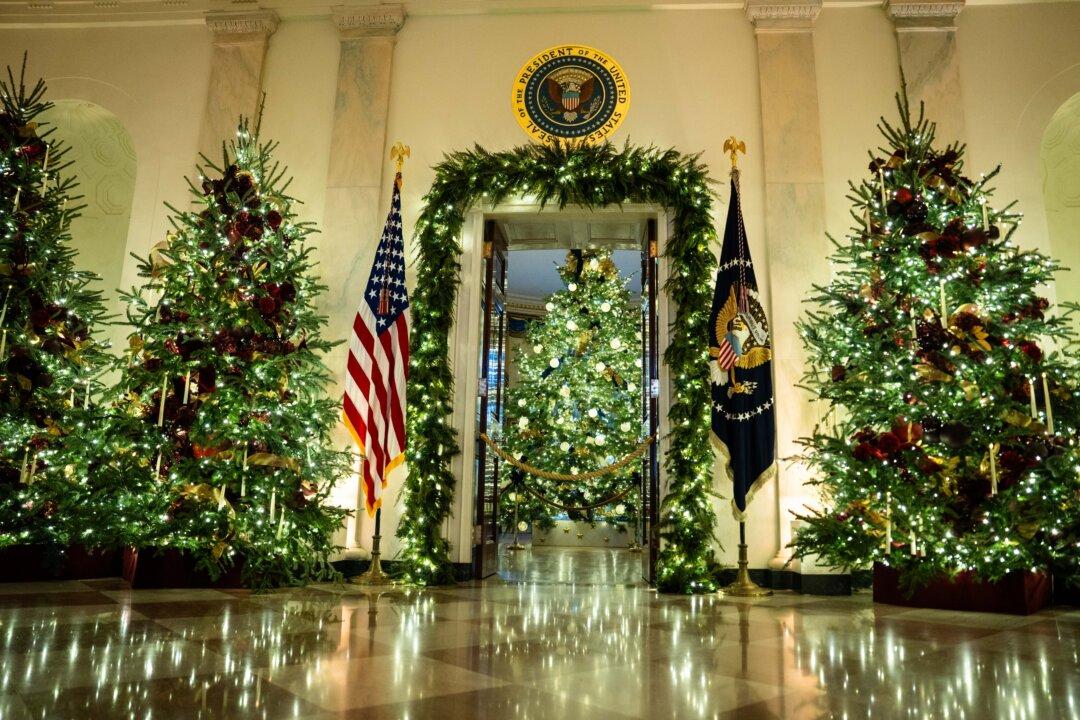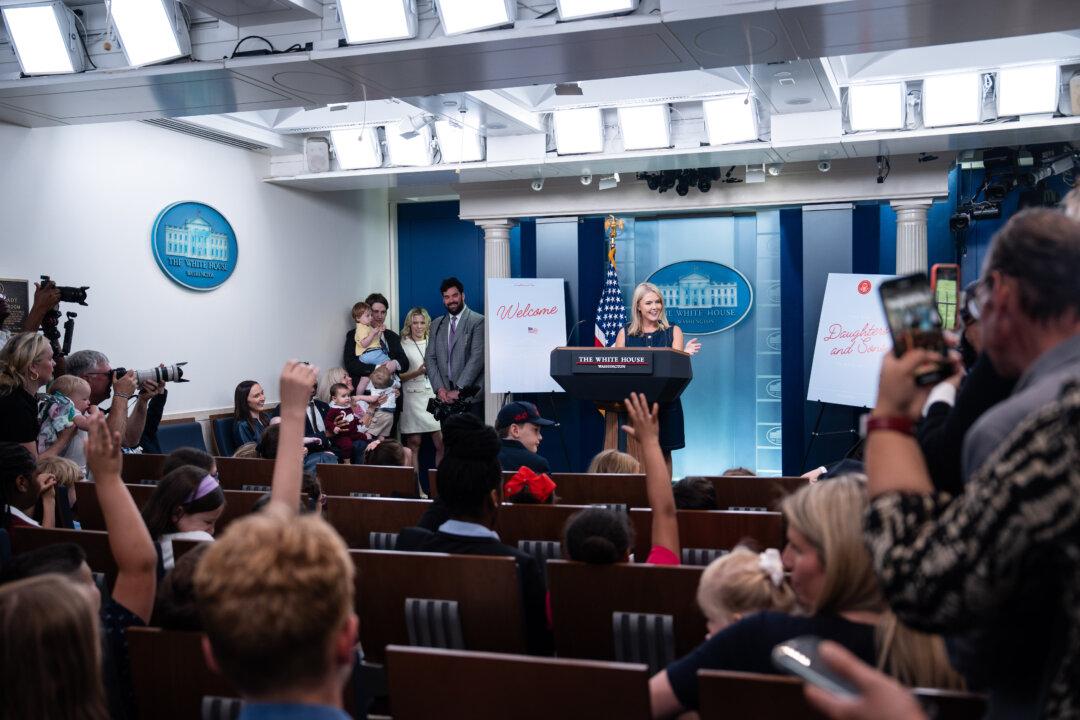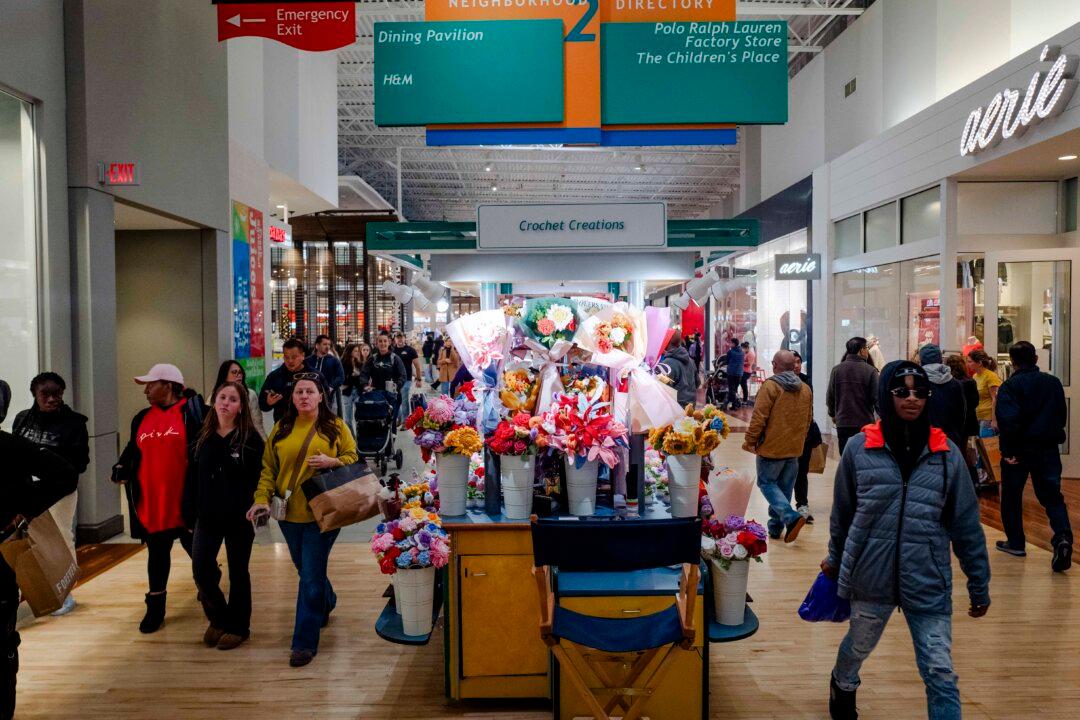WASHINGTON—The first week of the Oath Keepers trial ended on Oct. 7 at E. Barrett Prettyman U.S. Courthouse with brief testimonies from two FBI special agents.
Both agents said the bureau assigned them to investigate the Oath Keepers’ members before and after the 2020 presidential election. They analyzed social media posts, text messages, and other communications of defendants Stewart Rhodes, Thomas Caldwell, Kelly Meggs, Jessica Watkins, and others.





